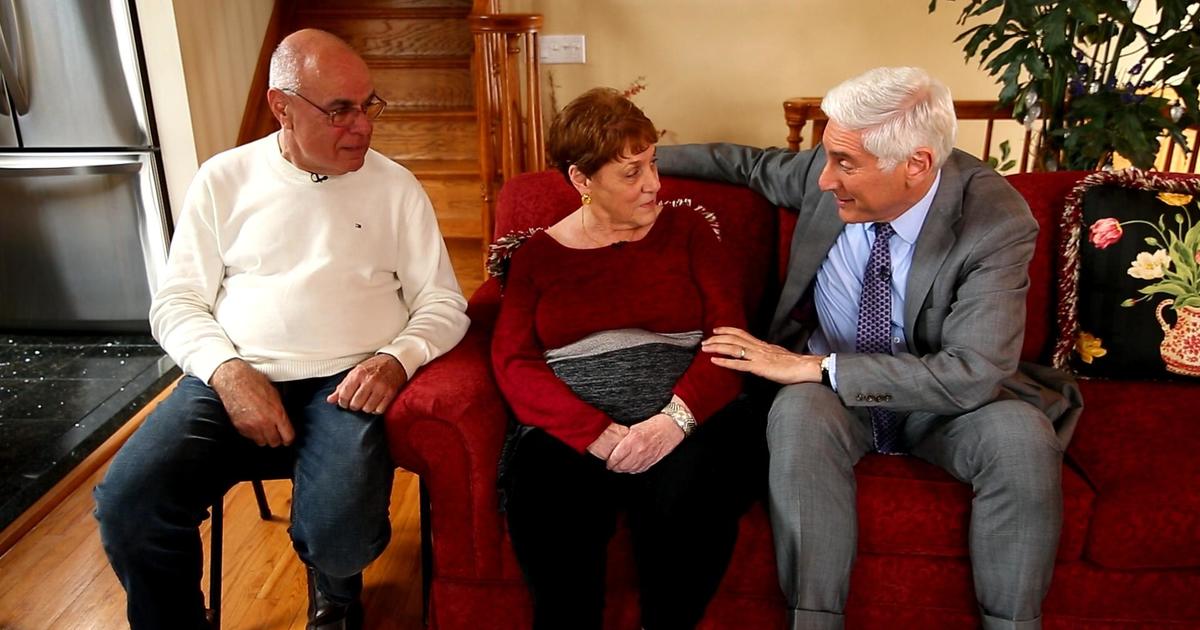After decades of medical research, why is chemotherapy still a mainstay for cancer patients?
Why do many Alzheimer’s patients still slide inexorably into helplessness?
How did developing a new drug become a multibillion-dollar venture that can take a decade or more?
Regulators, including at the Food and Drug Administration, have shackled every aspect of drug development under the guise of doing no harm.
But how exactly does it “harm” patients facing certain death to provide them with...
Posts tagged as “Alzheimer’s”

The legislation requires physicians, physician assistants, and nurses to undergo training in diagnosis, treatment, and care of patients with Alzheimer’s and other forms of dementia, before they can obtain or renew their licenses. It also requires physicians who have diagnosed Alzheimer’s in a patient to inform a family member or legal representative about the diagnosis. And it mandates that all hospitals, no later than Oct. 1, 2021, develop and put in practice a plan for recognizing and managing patients with dementia.

Biogen's double-digit move higher last month stemmed from two material events:Biogen and partner Eisai reported encouraging midstage results for the experimental Alzheimer's disease drug BAN2401. Biogen reported that sales of the spinal muscular atrophy drug Spinraza -- co-owned by Ionis Pharmaceuticals 108% in the second quarter from the same period a year ago. While Spinraza's strong commercial momentum certainly helps on this front, investors are undoubtedly looking toward Biogen's high-value Alzheimer's disease pipeline as the key to future growth. The Alzheimer's disease market, after all, represents a monstrous and largely untapped drug market right now.

For 11 years I pleaded with my challenging elderly father to allow a caregiver to help him with my ailing mother, but he always insisted on taking care of her himself. Every caregiver I went ahead and hired soon sighed in exasperation, “Jacqueline, I just can’t work with your father. His temper is impossible to handle and he’s not going to accept help until he’s on his knees himself.” When my father’s inability to continue to care for my mother nearly resulted in her death, I stepped in despite his very loud protests. It was so heart-wrenching to have my once-adoring father be so loving one minute and then some trivial little thing would set him off and he’d call me nasty names and throw me out of the house the next.

If it were any other disease, outraged patients and their families would be writing their legislators and demonstrating in front of drug makers’ headquarters.But Alzheimer’s is no ordinary disease, so the latest revelation that very few experimental drugs are being tested to see whether they might help people with moderate, let alone severe, dementia passed this week without so much as an indignant press release from advocacy groups or other Alzheimer’s organizations. Patients with dementia “cannot advocate for themselves,” said Dr. Sam Gandy, a neurologist and Alzheimer’s researcher at the Icahn School of Medicine at Mount Sinai.
“Caregivers are too exhausted to be advocates. This shifts the advocacy burden to either young people, who still think of themselves as invincible, or midlife people, whose lives are already overstuffed with children and aging parents, many of whom are in no hurry to add advocacy roles.”

When Jos� Belardo was diagnosed with Alzheimer's disease at the age of 50, his wife, Elaine's first thoughts were of loss and hopelessness. Her thoughts of despair took her straight to the end of what she believed would be the disease process. And she found herself obsessing about what she already knew about the disease — the suffering, stress and sadness of watching a loved one lose themselves without hope of finding their way back.
Juliette Bradley, who is the Communications Director for the Alzheimer's Association - Heart of America Chapter makes sure that Alzheimer’s patients and their families also know there is hope — and help. She says although the diagnosis of Alzheimer’s is overwhelming for most people, the Heart of America Chapter is here to help anyone who is in the midst of an Alzheimer's journey.

A 52-year-old courier from Chengdu, Sichuan province, China is winning the hearts of netizens for his filial piety for always bringing his 92-year-old mother to work every single day.
Cai Yujun, a delivery man, has been caring for his mother, Yang Suxiu, who was diagnosed with Alzheimer’s disease seven years ago, according to The Cover via CGTN.
Since it’s unwise to leave his mother alone due to her condition, Cai decided to bring her along in his everyday errands.
This has led Cai to let Yang stay with him every year from January to April as she joins him in his work.
“When we made deliveries to the office building, the security guard often refused to let my mother in.

That 5.7 million includes an estimated 5.5 million people age 65 and older and approximately 200,000 individuals under age 65 who have younger-onset Alzheimer's.
Simply put, the number of Americans living with Alzheimer’s disease is growing and growing fast.
Alzheimer's disease is the sixth-leading cause of death in the United States, and the fifth-leading cause of death among those age 65 and older.
Although deaths from other major causes have decreased significantly, official records indicate that deaths from Alzheimer's disease have increased significantly.
Between 2000 and 2015, deaths from Alzheimer's disease as recorded on death certificates increased 123 percent, while deaths from the number one cause of death (heart disease) decreased 11 percent.

Former Yankees left-hander and All-Star Fritz Peterson was so looking forward to coming back to Yankee Stadium in June for Old-Timers’ Day.
Peterson, 76, who overcame prostate cancer years ago, is fighting a new health battle.
“I really wanted to be there for the fans, I was there like seven years ago, but I just can’t make it.
“I was diagnosed last September, but when I say that I don’t even know what year that was,’’ Peterson said.
“It’s sad,’’ he said of his health situation, “but what can you do?’’Fritz Peterson will keep fighting.

As baby boomers move into old age and live longer, the potential number of Alzheimer's sufferers in the U.S. may reach record levels.
CBS News Chief Medical Correspondent Dr. Jon LaPook follows an Alzheimer's patient and her caregiver husband for 10 years in an unprecedented report that shows future sufferers and their caregivers what they may face.
The Alzheimer's Association warns of the dangerous stress caring for a patient can cause.
Alzheimer's forced Mike and Carol to switch roles, says Mike.
He tells LaPook he does the household chores Carol once did and now, he must care for her, too.

